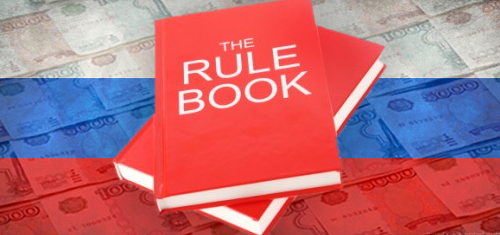 Russia’s sports betting operators are making slow progress in adapting to the country’s new online requirements.
Russia’s sports betting operators are making slow progress in adapting to the country’s new online requirements.
The Bookmakers SRO (self-regulatory organization) announced this week that it has selected the Moscow-based JSC KIWI-Bank to handle its TSUPIS centralized online betting payments hub. The bank is part of the QIWI Group, which operates over 175k electronic payment terminals across Russia.
TSUPIS is a requirement of the Russian government, which made tracking all online transactions a condition for enacting its new sports betting licensing regime. The rollout of the system has been delayed due to disagreements between rival SROs and concerns that some bookies would face higher transaction fees than others.
Bookmakers SRO chairman Nikolai Oganezov told Betting Business Russia that his group’s members had chosen KIWI-Bank in part because of its reliability and experience, but also because it lacked direct ties to any one bookmaker. Organezov claimed this latter feature was a “fundamental factor” in selecting KIWI-Bank.
In February, the rival First SRO chose money transfer outfit Mobilnaya karta as its TSUPIS platform. First SRO president Oleg Zhuravsky is a founder of both Mobilnaya karta and betting operator/First SRO member Liga Stavok, which led some bookies to quit First SRO and join the Bookmakers SRO over what they perceived to be favoritism. Zhuravsky has denied any favoritism and insists that all First SRO members will pay the same 1% commission.
Organezov has publicly mused that it’s only a matter of time before both SRO’s TSUPIS platforms will come under direct control of the Russian government, because, you know, Russia.
LIGA STAVOK EXPANDS TSUPIS REGISTRATION
Liga Stavok, the first official recipient of a new Russian online sports betting license, has already begun registering customers under its TSUPIS system. This process requires first opening an account with the betting site, then opening an account with TSUPIS, and finally physically presenting one’s passport at a Liga Stavok retail shop.
Until this week, Liga Stavok was only confirming registrations at its St. Petersburg locations. On Monday, Liga Stavok expanded this facility to five other Russian cities – Moscow, Omsk, Ufa, Yekaterinburg and Chelyabinsk – but the operator claims that other cities will be added in the “near future.”
The requirement to physically present identification to legally wager online presents something of a dilemma for international online poker companies who continue to hope and pray that Russia will authorize the activity. Assuming legalization is in the works, will poker companies have to partner with a Russian bookmaker in order to receive a local license?
RUSSIA CONFIRMS BOOKIES’ MANDATORY CONTRIBUTIONS TO SPORTS BETTING
In other Russian bookmaker news, the government has confirmed that its rewrite of the Physical Culture and Sports laws will require bookies to contribute 5% of their betting revenue back to Russian sports federations.
While 5% is the goal, bookies will be required to pay each sporting federation a minimum of RUB 3m ($44k) per quarter, while the total minimum payment per quarter to all federations must top RUB 15m, putting each bookie on the hook for an annual contribution of no less than RUB 60m (US $888k).
Asked whether these minimum payments were realistic, Oganezov told Bookmakersrating.ru that the “flight of imagination of our legislators” never ceased to amaze him, adding that the numbers appeared to have been plucked out of thin air. Oganezov also suggested that bookies should be allowed a say in how these payments are spent in order to minimize corruption among sporting bodies that find themselves newly flush with bookie cash.
By contrast, Zhuravsky said he viewed the new rules as a “positive” and called the RUB 60m contribution “an acceptable amount.”
However, Zhuravsky did find fault with Russia’s proposed new advertising rules for bookies, which limits bookmaker ads to live sporting broadcasts, and the time allotted to bookie ads cannot exceed 20% of total advertising time during a sports event.
The proposed amendment makes no mention to bookies being allowed to advertise via print publications or online media. Zhuravsky found the latter omission particularly curious, particularly given Russia having begun the process of issuing official online betting licenses, but, you know, Russia.
